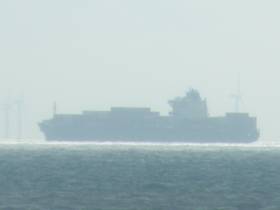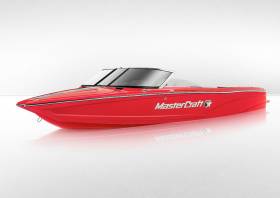Displaying items by tag: Tariffs
EU Stops Retaliatory Tariffs on American Boats Entering Europe
The United States and European Union (EU) announced a deal to remove steel and aluminium tariffs, resulting in the full removal of the 25% retaliatory tariffs imposed on American-made boats and engines entering the EU.
Since the tariffs were implemented in 2018, the NMMA team has dedicated significant attention and resources to resolve this issue as Afloat reported previously here
The suspension of the retaliatory tariffs comes as welcome news for American boat builders, who have long been subject to these punitive tariffs.
However, a lot of the American brands available in Ireland were from EU manufacturing plants so were never affected by the retaliatory tariffs but some popular American built boats in Ireland, including some of the J-boat range, will now be available tariff-free.
“Since their first days in office, President Biden and Ambassador Tai have been committed to resolving the U.S., EU trade dispute that has harmed the American boat building industry, and today we applaud and thank them for delivering on this promise,” said Frank Hugelmeyer, president of the National Marine Manufacturers Association. “America’s boat builders were collateral damage of this tit-for-tat trade conflict for more than three years, resulting in a 50% reduction in exports to our industry’s second-largest international market and the loss of hundreds of millions of dollars in revenue.
“This agreement is a momentous victory for the recreational boating industry – which represents the largest segment of the $788 billion outdoor recreation industry, supporting nearly 700,000 U.S. jobs and over 35,000 businesses. Thanks to the leadership of President Biden and his administration, we are no longer saddled with a structural disadvantage to international competitors.”
Recreational Boating Sector Joins Over 100 Organisations Urging EU & US to Lift Retaliatory Tariffs
More than 100 European and American associations have issued a joint statement ahead of the EU-US Summit in Brussels next Tuesday 15 June, calling for the removal of tariffs on sectors unrelated to the ongoing transatlantic trade disputes.
For recreational boating, this relates to the retaliatory tariffs put in place by the EU after the US placed tariffs on EU steel and aluminium.
The European Boating Industry (EBI) and its US counterpart the National Marine Manufacturers Association (NMMA) have now joined a coalition that comprises 113 organisations — which range from agricultural products to consumer goods and recreational boating.
The move is also part of a wider cooperation by the associations on the trade dispute which includes the International Council of Marine Industry Associations (ICOMIA).
Their full statement can be downloaded below.
Tradewinds: Shippers Brace for Further US-China Tariffs
In the US importers and their logistics providers are preparing for further US-China tariffs and a possible fresh rush to front-load deliveries to beat the next tariff deadline, after the US confirmed its intention to impose 25% duties on further US$300 billion of products imported annually from China.
As Lloyd's Loading List reports, The Office of the United States Trade Representative (USTR) has called for comments by 17 June on its new list of products. It said: “The proposed modification is to take further action in the form of an additional ad valorem duty of up to 25% on products of China with an annual trade value of approximately $300 billion.”
Representatives of US importers warned that it was impossible for companies to switch their sourcing of products from China to other countries in the short term, with sourcing decisions taking time to make and with other countries lacking the necessary manufacturing and logistics capacity that China has.
Matthew Shay, president and CEO of the National Retail Federation (NRF), said retailers were considering a “longer-term play about diversifying the supply chain and maybe moving some of the supply capacity in other places”. But he added: “The issue is there’s no new China.
For further analysis of the US-China tariff click here and for a study on its impact on the US.
European Brokers Hampered By New EU Tariffs On US Pleasure Craft
#Trade - European importers of pleasure craft from the US have already been impacted by new EU tariffs that add an average of €20,000 per boat.
According to Boating Business, dealers across Europe have been placing orders for new boats on hold since the tariffs came into effect in June as part of the response to the Trump administration’s steel and aluminium levies.
Yacht transport companies are also affected by the situation as the majority of their small boat business is from the US to European markets, says logistics specialists Peters & May.
The new rules apply to all pleasure craft in transit since 22 June, regardless of size, with only inflatable boats excepted.
And the increase from 17% to 25% on import costs is having what are perhaps unintended consequences for European brokers.
“The duty is intended to protect our industries, but we sell waterski and wakeboard boats which are not made over here,” says Jason Bates of Nautique Midlands in the UK.
Boating Business has more on the story HERE.





























































